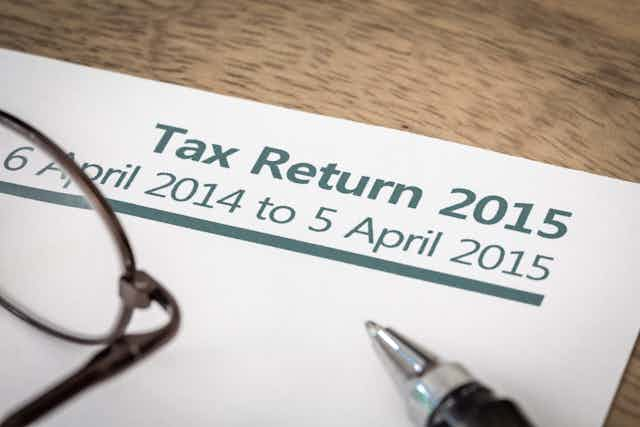January is a busy month for tax in the UK as millions of people struggle to complete their tax returns before the January 31 deadline.
Meanwhile, HMRC, the tax agency, is dealing with public ire over its acceptance of Google’s complex – but perfectly legal – tax arrangements and it is trying to find a new chief executive to replace the incumbent, Lin Homer, who recently resigned and will step down in April. It’s a tough time for the UK’s tax authority.
HMRC has two main objectives: it has to collect tax from the law abiding majority as painlessly as possible and it has to pursue tax evaders as ruthlessly as resources allow. This has two elements, the constant vigilance to counter (illegal) evasion, and the endless game of whack-a-mole that is the process of counteracting each (legal) avoidance loophole as it occurs. So how is HMRC doing and what should we be looking for in Lin Homer’s replacement?

The dreaded tax return
Filing your tax return can be a time-consuming and difficult process – I’m a retired tax inspector and I haven’t finished mine yet. When it comes to customer service to help people complete their returns, HMRC’s service has been far from glittering. It was criticised in a Commons committee report in 2013 for having “woefully inadequate and un-ambitious” telephone answering targets (which they hadn’t even met). Things had scarcely improved by last year, when a Which survey found telephone waiting times still to be shockingly poor.
News did not get any better for taxpayers who might want to talk to someone face to face after HMRC took the decision to close down its network of enquiry centres. And written correspondence didn’t fare much better: it invariably takes at least 30 days to get an answer to a letter.
People have also complained of HMRC using psychological techniques to “nudge” us into compliance.
HMRC would like us all to use its self-service online system, but its ambitious plans to develop into a digital service went in a matter of months from “the end of the tax return” to simply making tax digital and the prospect of a requirement to make something that sounds very much like a tax return four times a year.
The lasting legacy of Lin Homer’s four-year term as head of HMRC may be the organisation’s complete retreat from the towns and cities it serves. After closure of the enquiry centres the next step is to save more money by withdrawing from public view altogether into a handful of redoubts – it was announced last year that HMRC plans to abolish its local office network altogether and move its remaining staff into 13 regional centres.
Tax avoidance
Homer’s HMRC has had some successes in cracking down on tax avoidance, although what it means by “success” may not be everyone’s definition. It managed to make Starbucks pay more tax and agreed a settlement with Google to pay £130m in back taxes. If we are to believe the National Audit Office, HMRC brought in £26.6 billion from compliance activities in 2014-15 – more than half a billion pounds more than their target.

The extent to which this comes from stopping avoidance is questionable, however. As the audit office explains, HMRC has only partial data on where that £26.6 billion comes from: much is from their work countering straightforward criminality and organised crime and the yield from preventing sophisticated tax avoidance may be only around 30-40% of the overall total.
The psychology of tax avoidance requires no sophisticated analysis. People want fairness, as the rallying cry of “either we all pay tax or none of us do” attests. That’s the motto of a group of small business owners from the Welsh town of Crickhowell, which is trying to bring attention to the methods used by multinationals to avoid paying taxes.
A recent documentary about their fight shows the legal loopholes routinely exploited by multinationals. Where they differ is that, although the small traders identified how to exploit the system themselves, they were not interested in taking their town offshore. As they pointed out: if they did that, who would pay for the roads and schools?
Their concept of fairness was that they should be treated the same way as the multinationals, and their campaign is backed up by a strategy which threatens to “take £1 billion offshore” if HMRC doesn’t move towards this concept of fairness.
So whoever replaces Lin Homer, we need a taxpayer’s champion, not a plutocrat’s manager. Perhaps it is time we all signed the Crickhowell petition to put their local coffee shop manager in Lin Homer’s seat?

